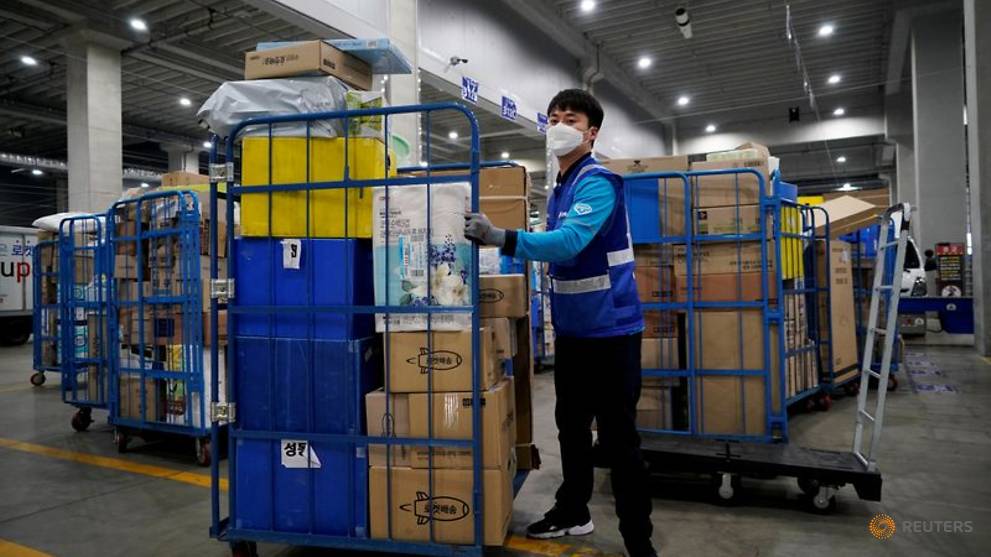
COVID-19 outbreak at South Korea e-commerce warehouse drives spike in new cases
SEOUL: South Korea reported the highest daily number of new coronavirus cases in 49 days on Wednesday (May 27), as one of the country's largest e-commerce companies battled an outbreak linked to a now-shuttered logistics facility.
The Korea Centers for Disease Control and Prevention (KCDC) reported 40 new cases as of midnight on Tuesday, bringing the country's total number to 11,265. A day earlier the country recorded 19 new cases.
So far, at least 36 cases have been linked to an outbreak at the logistics centre operated by SoftBank-backed e-commerce firm Coupang in Bucheon, west of Seoul, the KCDC said. It was not immediately clear how many of the cases were reported in the last 24 hours.
About 3,600 people at the facility are being tested. The company said it closed the centre on Monday and began the strongest disinfection measures recommended by authorities.
READ: South Korea sticks with COVID-19 lockdown rollback despite nightclub outbreak
READ: COVID-19: South Korea deploys mobile data, police to tackle nightlife cluster
Coupang benefited from the contactless trend driven by COVID-19 in South Korea, with orders surging for groceries and other products. The logistics centre opened in early March and is in charge of deliveries to western Seoul, a spokeswoman said.
The first case related to the centre was diagnosed on Saturday, and is suspected to be connected with a Seoul nightclub outbreak earlier this month.
Health officials warned that cases linked to the centre could rise.
"We are very nervous about community infections and we are keeping a close eye on the situation," vice health minister Kim Kang-lip said at a briefing.
Kim said authorities suspect the logistics centre did not comply with "basic" quarantine principles, adding that an investigation is under way.
A spokeswoman for Coupang however said the centre went through daily disinfection and all employees wore masks and gloves and had temperatures checked.
READ: How South Korea turned an urban planning system into a COVID-19 tracking database
Commentary: South Korea succeeded in controlling COVID-19 panic buying, thanks to tracking and surveillance
Despite the spike in new cases, more than 2 million children returned to class on Wednesday, the latest in a phased opening of schools.
"What we are worried about now is that when kids go to school, they're naturally physically close to their friends and they have to eat together so they may be infected with coronavirus," said Chan Woong-jeon, the father of a 2nd grader who returned to Seryun Elementary School in Seoul on Wednesday.
Park Hyeon-ji, a teacher at the school, said teachers had been trained on how to react to any outbreak.
"We'll be able to take immediate action," she said.
BOOKMARK THIS: Our comprehensive coverage of the coronavirus outbreak and its developments
Download our app or subscribe to our Telegram channel for the latest updates on the coronavirus outbreak: https://cna.asia/telegram